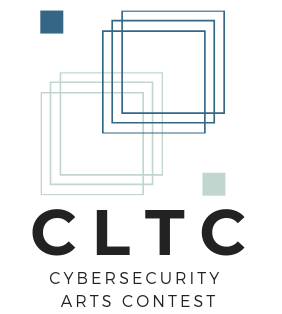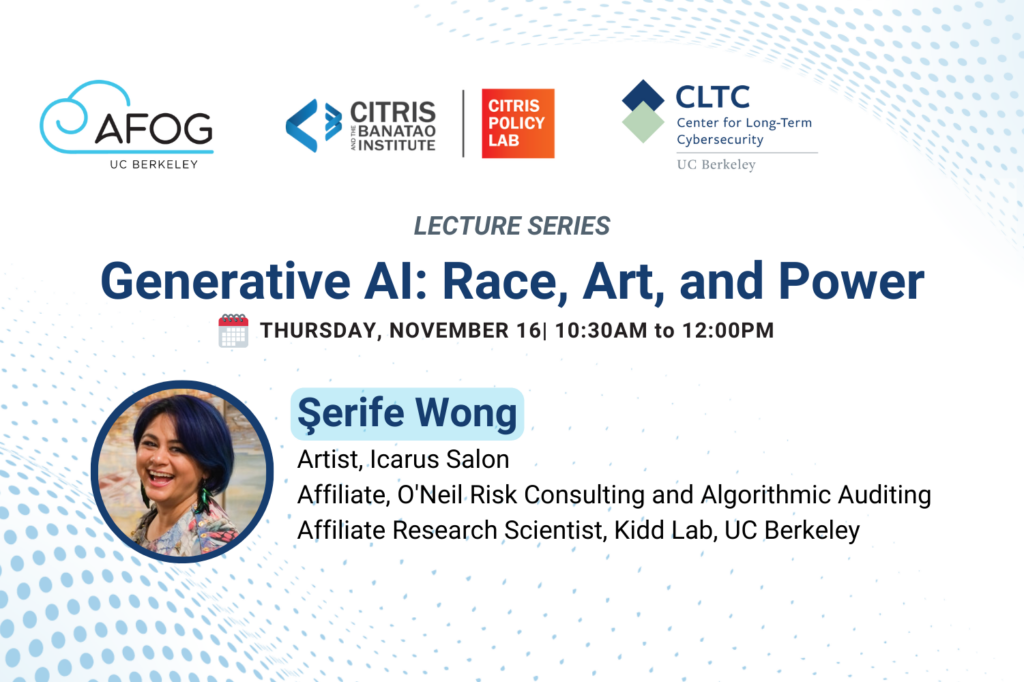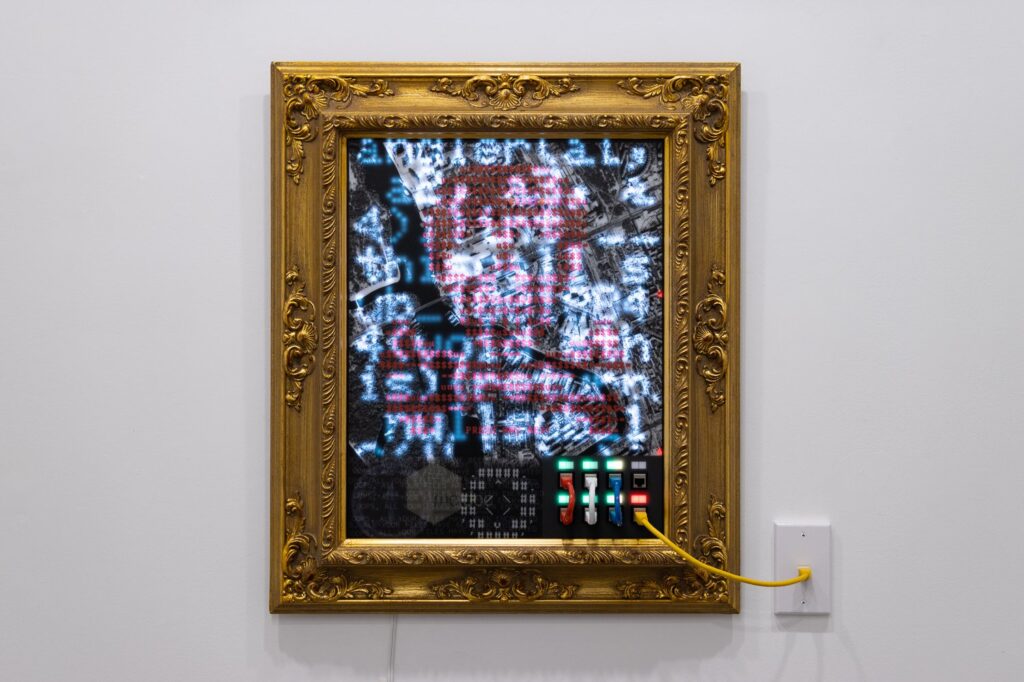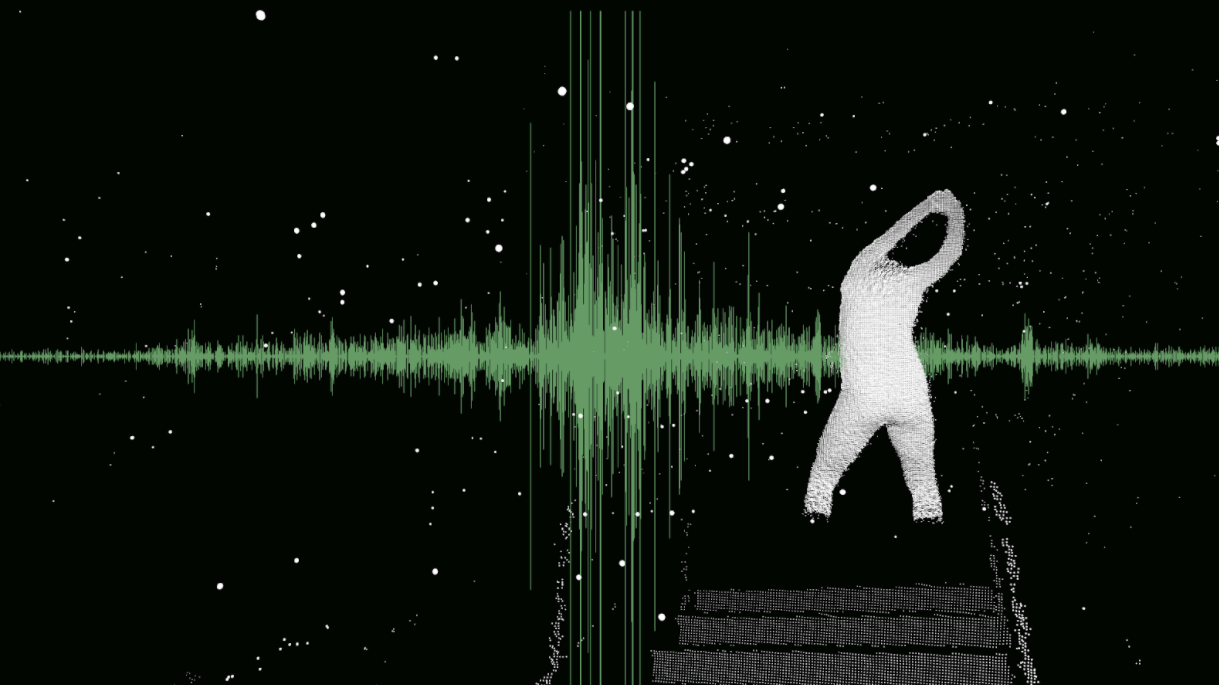
The Daylight Security Research Lab, a program within the University of California, Berkeley’s Center for Long-Term Cybersecurity (CLTC), is accepting applications for our second-annual Cybersecurity Arts Contest. We seek artistic proposals that engage substantively with cybersecurity in themes, topics, audience, and/or materials.
The conceptual and practical aspects of the term “cybersecurity” are evolving rapidly, as what we mean by “cyber” and “security” is changing in ways that would have been almost unimaginable a few years ago. Contemporary tropes of security’s representation (e.g., the “hacker in the hoodie,” the “scrolling green code,” etc.) fail to capture the gravity, impact, and reach of security in daily life. As such, a transformative cybersecurity research program should grapple with security’s representation and discourse in the public sphere. Through this prize, CLTC hopes to expand public dialogue around — and awareness of — cybersecurity.

Among the questions the Cybersecurity Arts Contest seeks to explore are:
- Who, outside of the popular imagination of “hackers in hoodies,” participates in digital security?
- Who is responsible for digital security?
- Whom does security affect?
- What does security look and feel like to these different actors?
- What are new ways of representing the human impacts of security’s failures?
GOALS
The primary goal of this prize is to expand and refine representations and portrayals of cybersecurity, broadly defined.
CLTC seeks proposals for interdisciplinary work produced and shared as single-channel media or web-based work. CLTC encourages the submission of proposals from cross-disciplinary teams. Applicants may propose installations of existing work and commission of new work.
CLTC will prioritize proposals that have the potential to make a meaningful, longer-term impact on the representation of cybersecurity.
Prize amounts range from a minimum of $1,000 to a maximum of $12,000.
SELECTION PROCESS
Proposals will be reviewed by an interdisciplinary committee and judged for artistic merit, relevance, feasibility, and potential impact. Impact should include potential downstream effects from the work (e.g., influencing other artists, reaching particular audiences, etc.).
Proposals that demonstrate a plan for completion of work by December 2021 will be prioritized.
PROPOSAL BODY
Please include a title for your project, description of the work, including any current or future plans to show the work, and your intended audience for this work. Proposals should be a maximum of two pages.
Describe this work’s potential impact on its intended audience. How will this work influence viewers? How will it influence other artists, gallery owners, art practitioners, or other audiences?
Proposals should demonstrate the author’s ability to execute artistic projects.
Proposals should Include a timeline for completing the work.
Optionally, proposals may include a CV and/or work samples as an appendix. An appendix will not be counted toward the page limit.
LOGISTICS
Submit proposals via this Google Form.
Proposals are due on March 31, 2021 by midnight, Pacific Standard Time.
Prizes will be distributed starting in May 2021.
Prize winners will be invited to show and discuss their work in a CLTC-hosted public forum in order to engage with the cybersecurity research community and arts community both at Berkeley and worldwide. Read about our past cybersecurity arts events here.
Note that recipients must be individuals, rather than organizations.
EXAMPLE WORKS
See winners of our inaugural Cybersecurity Arts Contest here.
CONTACT
For more information, please contact cltc-arts@berkeley.edu.




